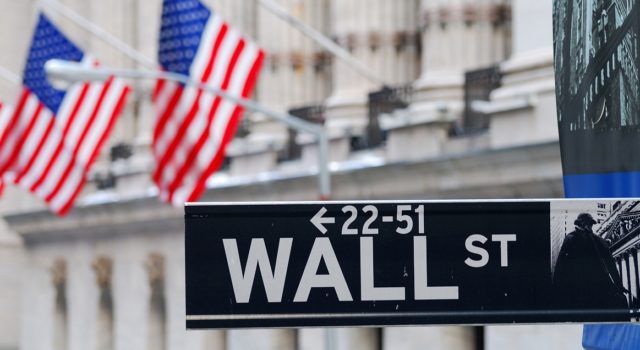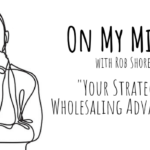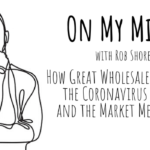It seems that weekly our financial services sector is the topic of another unsavory story.
In fact vilifying Wall Street, and those that work on it, has become sport.
Our guest this week addresses this phenomenon and offers insights into how we transform our sector.
Kim Ann Curtin is the author of Transforming Wall Street: A Conscious Path for a New Future and the Founder of The Wall Street Coach, an international executive coaching & leadership development firm. Kim and her team help C-Suite executives accelerate their personal and professional success through consciousness, helping them to become as successful on the inside as they are on the outside.
Kim has worked in finance since 1999 and since the financial market crash of October 2008, she has been working to build a more optimistic and sustainable vision for the finance industry. As The Wall Street Coach, Kim is a trusted adviser and consultant to executives, teams, conferences and Fortune 500 companies, both in the US and across the globe. Her work has been profiled in CNN.Money, Fortune magazine, Smart Money, TheStreet.com and Associated Press.
Book Kim for your next event through Wholesaler Masterminds Speakers Bureau.
Capitalism Meets Mindfulness
Nearly ten years ago, I left my lucrative assistant to the MP of a Hedge Fund position on Wall Street to become an executive performance coach. While I had enjoyed my previous career and was certainly well-compensated, I felt unsatisfied. Inside, I had always thought I was on this planet to make a positive difference in the world. Frustrated that my career wasn’t an expression of that, I hired an executive coach to get to the bottom of my disconnect. My work with her unexpectedly ignited my passion for the coaching profession, so I decided that was how I would make my difference.
After two years of steady clients, I found in the summer of 2008 that my coaching clientele was dramatically declining. One day, I found myself complaining to a friend about the lack of business. She had an unusual suggestion. She said I could coach for free, and pick up side work to pay the bills. She believed that if coaching was what I was meant to do, I’d find a way to navigate it, no matter what.
Fueled by this idea, on October 7, 2008, I sat down outside the NYSE with a small tasteful sign that read, “The Coach Is In: Free Coaching.” Coincidentally, the stock market fell over 500 points that day, and before I knew it, folks had lined up to engage in speed coaching with me right there on the street. That day The Wall Street Coach was born.
Fast forward three years. I watched the Occupy movement begin. A lot of tension was in the air. Many people were frustrated and angry—and rightfully so—that those who had caused the crisis in many ways were walking out of the debris in one piece and not being held accountable. I remember being frustrated about the bailouts and feeling they seemed antithetical to how capitalism works.
As the Occupy movement grew in momentum, one day I took a walk through Zuccotti Park downtown and spoke to some of the organizers. I believe in civil disobedience and in the power a small group of people to change the world. But I also noticed what I can only describe as “otherizing.” I really felt this movement was defining capitalism as wrong, instead of speaking to how it had been perverted.
The entire finance industry wasn’t the culprit. It was the lack of morality and integrity of some of those in the finance industry. I thought, There must be a way to encourage a more positive outlook and restore a sense of confidence in capitalism.
One point I discuss in my book, Transforming Wall Street, is that capitalism is not inherently problematic—it merely needs to be balanced with consciousness and integrity. In my book, I tried to show that many Wall Street financiers have achieved this balance. I conducted more than fifty interviews with successful business men and women who discussed the moral challenges many of them faced while on Wall Street—and how they overcame them. These authentic and successful Wall Street individuals can be positive role models who provide tools for current and future generations to achieve this same balance. With those tools, we can start to rebuild our trust in finance and in all aspects of capitalism.
The tools I suggest we use to build our consciousness I call the “Five Practices to Becoming More Awake.” I designed these practices to help others achieve a greater degree of consciousness in both their professional and personal lives. The five practices are:
- Self-Responsibility: This practice is focused on taking responsibility for what shows up in one’s life without fault or blame. Everything shifts when you take responsibility for your life and everything that shows up in it.
- Self/Other Empathy: This practice focuses on the importance of having compassion for oneself and the challenges we regularly face. All human beings are driven by need, so when we don’t have our needs met, we experience unpleasant feelings. For example, if your need for respect, security, and purpose aren’t being met, you might feel frustration, resentment, or anxiety. Practicing self-empathy helps us deal with moving through these emotions. When we have empathy for ourselves, we can learn to develop forgiveness, understanding, and compassion first for ourselves and then even for others.
- Emotional Non-Resistance: This practice builds on the practice of self/empathy by encouraging us to learn how to “be with” difficult feelings. This exercise involves identifying where in the body we can feel negative feelings as they occur; we then force ourselves to stay in the moment and “ride the wave” of the emotion so it can move through us completely.
- The Internal/External Journey: The journey to developing consciousness can be both internal and external, and it is unique to each individual. Sometimes, it is a metaphoric “knock at the door.” Other times, a very real experience sends us on this journey. Author and mythologist Joseph Campbell called this “The Hero’s Journey.” It is marked by four distinct stages: a) Separation/Departure: call to adventure, b) Descent: trials and temptations, c) Initial: achieving the gift or boon, and d) Return: the road back.
- Self-Awareness/Mindfulness: Self-awareness is the ability to observe one’s self, feelings, and behaviors in any circumstance with curiosity and neutrality. Mindfulness is about being present to the moment at hand. These two go hand-in-hand. Many practices facilitate developing more self-awareness, including meditation. It is the practice of letting go of everything other than this one moment. As Seth Godin says, “Instead of wondering when your next vacation is, maybe you should set up a life you don’t need to escape from.”
These practices are designed to help you start your own journey toward achieving a greater degree of consciousness in business. They will allow you to succeed more effectively and with greater confidence. For more on the five practices, please visit my new YouTube series.
Written by Kim Ann Curtin


 10 Great Wholesaling Ideas In Under 20 Minutes – Call Replay
10 Great Wholesaling Ideas In Under 20 Minutes – Call Replay On My Mind: Your Strategic Wholesaling Advantage
On My Mind: Your Strategic Wholesaling Advantage On My Mind: How Great Wholesalers Handle the Coronavirus Event and the Market Meltdown
On My Mind: How Great Wholesalers Handle the Coronavirus Event and the Market Meltdown Death by Referrals with Kirk Lowe
Death by Referrals with Kirk Lowe 4 Key Elements to Delivering a Difficult Message with Steven Gaffney
4 Key Elements to Delivering a Difficult Message with Steven Gaffney